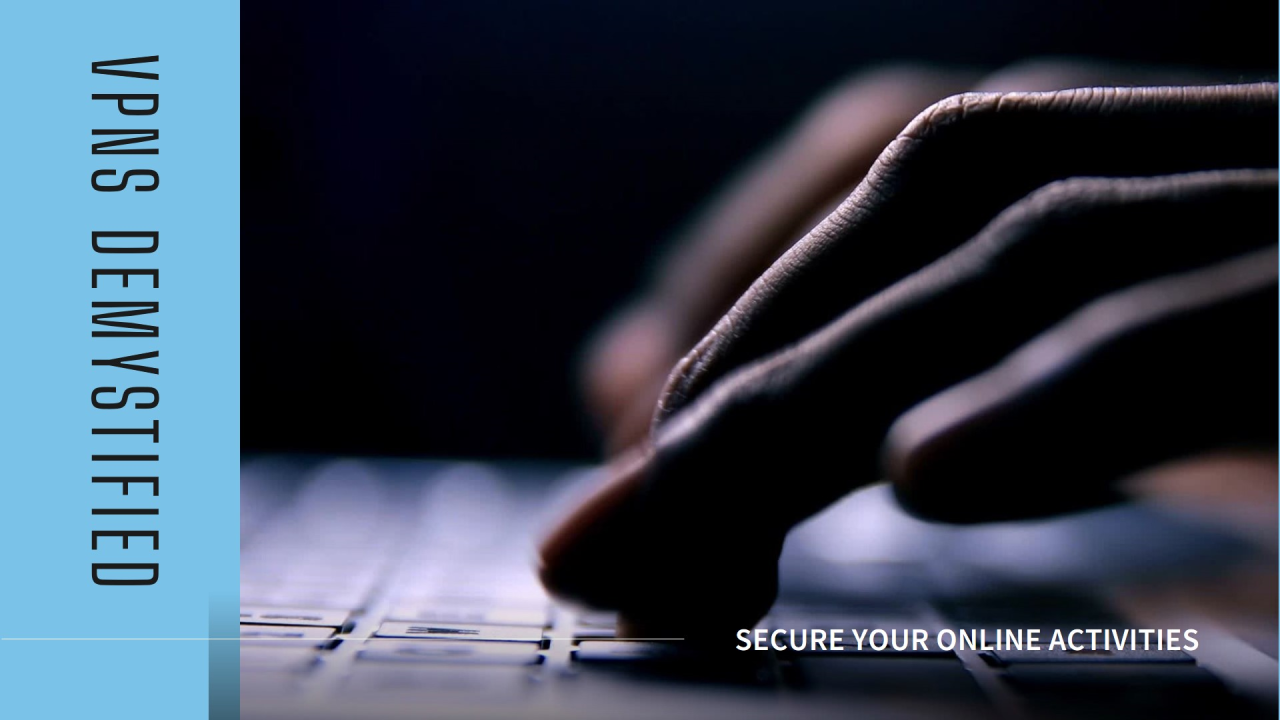
VPNs Demystified: How Virtual Private Networks Secure Your Online Activities
In an era where data breaches and cyber threats are increasingly common, ensuring online privacy and security has become paramount. Enter Virtual Private Networks, or VPNs—a powerful tool that has gained popularity among individuals and businesses alike for safeguarding sensitive information. But what exactly is a VPN, and how does it work to protect your online activities? In this article, we’ll demystify VPNs, explore their benefits, and explain why they are essential in today’s digital landscape.
What Is a VPN?
A Virtual Private Network (VPN) is a technology that creates a secure, encrypted connection between your device and the internet. Think of it as a private tunnel that shields your online activities from prying eyes. When you use a VPN, your internet traffic is routed through a remote server, effectively masking your IP address and making it appear as though you’re browsing from a different location.
How Does a VPN Work?
The magic of a VPN lies in its ability to encrypt data. When you connect to a VPN, your data is scrambled into an unreadable format before it leaves your device. This encryption process ensures that even if your data is intercepted by hackers or surveillance entities, they won’t be able to decipher it.
Here’s a step-by-step breakdown of how a VPN works:
Why Use a VPN?
The benefits of using a VPN extend beyond just privacy and security. Here are some key reasons why a VPN is a valuable tool in today’s digital world:
1. Enhanced Privacy
One of the primary reasons people use VPNs is to protect their online privacy. By masking your IP address and encrypting your data, a VPN ensures that your online activities remain private, even on public Wi-Fi networks. This is particularly important when accessing sensitive information, such as online banking or personal emails.
2. Bypass Geo-Restrictions
Many websites and online services restrict access based on your geographic location. A VPN allows you to bypass these geo-restrictions by connecting to a server in a different country. Whether you want to access streaming services, social media platforms, or websites that are blocked in your region, a VPN provides the freedom to browse without limitations.
3. Secure Public Wi-Fi Connections
Public Wi-Fi networks, such as those found in coffee shops, airports, and hotels, are notoriously insecure. Hackers often target these networks to intercept sensitive data. By using a VPN, you can secure your connection and protect your data from being compromised, even on unsecured networks.
4. Prevent Bandwidth Throttling
Internet Service Providers (ISPs) sometimes throttle (slow down) your internet speed based on your online activities, such as streaming or gaming. A VPN can prevent bandwidth throttling by encrypting your traffic, making it difficult for your ISP to monitor and throttle specific activities.
5. Access to Better Deals
Believe it or not, some online retailers and service providers offer different prices based on your location. By using a VPN to change your virtual location, you can potentially find better deals on flights, hotels, and online services.
Choosing the Right VPN
With countless VPN providers on the market, choosing the right one can be daunting. Here are a few factors to consider when selecting a VPN:
Final Thoughts
In a world where online threats are ever-present, using a VPN is a simple yet effective way to protect your privacy and secure your online activities. Whether you’re concerned about hackers, want to bypass geo-restrictions, or simply value your privacy, a VPN offers peace of mind in the digital age.
As more people become aware of the importance of online security, the use of VPNs will only continue to grow. By understanding how VPNs work and the benefits they offer, you can take control of your digital privacy and enjoy a safer, more secure online experience.
#VPN #Cybersecurity #OnlinePrivacy #DataProtection #TechSecurity #DigitalPrivacy #InternetSecurity #SecureBrowsing #PrivacyMatters #TechInsights #CyberAwareness #DigitalSecurity #SafeInternet #TechExplained #VirtualPrivateNetwork #OnlineSafety #Encryption #TechEducation #NetworkSecurity #SecureConnections